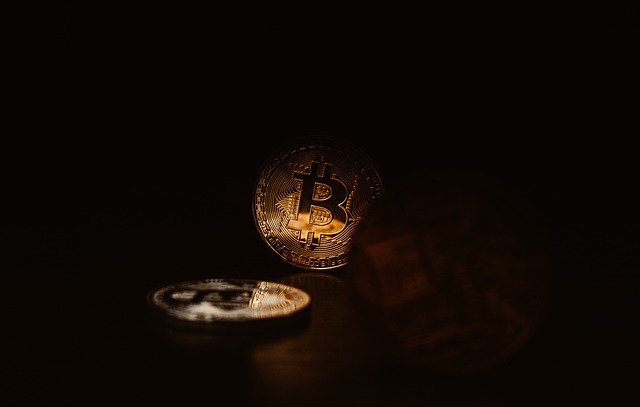In the labyrinthine world of finance, few phrases raise as much intrigue and concern as “alleged SEC securities.” What do these alleged securities entail? Are they legal or dubious financial instruments? Why does the SEC come into play, and how does it regulate them? Join us on a journey to demystify this topic, shedding light on what alleged SEC securities really mean and what implications they hold for investors, businesses, and regulatory bodies alike.
What are Alleged SEC Securities?
At its core, the term “alleged SEC securities” refers to securities that are purportedly regulated by the U.S. Securities and Exchange Commission (SEC). The adjective “alleged” suggests a cloud of uncertainty or suspicion surrounding whether these securities truly fall under the SEC’s purview. Let’s delve deeper into the nuances:

Understanding Securities and the SEC
Securities encompass a broad range of financial assets, including stocks, bonds, and options, that hold value and can be traded. The SEC, established to protect investors, maintain fair markets, and facilitate capital formation, plays a pivotal role in overseeing securities transactions and enforcing regulations to ensure transparency and accountability.
Alleged vs. Actual SEC Securities: Clarifying the Difference
The distinction between alleged and actual SEC securities often hinges on compliance with SEC regulations. Securities that comply with these regulations are deemed legitimate and fall under the SEC’s oversight. On the other hand, alleged SEC securities may refer to instruments that are purportedly subject to SEC regulation but are contested or under investigation for non-compliance.
Common Misconceptions and Myths
Misunderstandings about alleged SEC securities abound, contributing to confusion among investors and businesses. Let’s debunk some prevalent myths:
- Myth: Alleged SEC securities are always illegal.
- Reality: Alleged SEC securities may not necessarily be illegal but could be under scrutiny for regulatory compliance.
- Myth: The SEC ignores alleged securities.
- Reality: The SEC investigates alleged securities to determine if they meet regulatory standards.
- Myth: Investing in alleged SEC securities is always risky.
- Reality: Risk varies depending on the nature and compliance status of the alleged securities.

Regulatory Landscape of Alleged SEC Securities
Navigating the regulatory landscape of alleged SEC securities requires an understanding of how the SEC operates and enforces its rules:
SEC’s Role in Regulating Securities
The SEC oversees securities transactions to protect investors and maintain fair markets. Its regulatory framework includes registration requirements, disclosure obligations, and anti-fraud provisions aimed at fostering transparency and investor confidence.
Challenges in Regulating Alleged SEC Securities
Regulating alleged SEC securities poses challenges due to:
- Complexity of Financial Instruments: Some alleged securities may blur the line between regulated and unregulated assets, making classification and oversight challenging.
- Jurisdictional Issues: Determining whether an alleged security falls under SEC jurisdiction can be contentious, especially in cases involving international transactions or novel financial products.
Recent Developments and Enforcement Actions
Recent years have seen heightened scrutiny and enforcement actions by the SEC concerning alleged securities:
- Investigations and Prosecutions: The SEC conducts investigations and prosecutes entities suspected of violating securities laws, including those involving alleged securities.
- Regulatory Updates: Updates to SEC regulations and enforcement priorities impact the treatment of alleged securities, influencing market dynamics and investor behavior.

FAQs: Your Burning Questions Answered
1. Are alleged SEC securities always illegal?
Not necessarily. Alleged SEC securities may be undergoing investigation to determine compliance with SEC regulations. Whether they are legal or illegal depends on adherence to regulatory standards.
2. How can investors identify alleged SEC securities?
Investors should conduct due diligence, review SEC filings, and consult with financial advisors to ascertain if securities comply with SEC regulations. Allegations or investigations may signal potential risks.
3. What should businesses do if their securities are labeled as alleged SEC securities?
Businesses should cooperate with SEC inquiries, ensure compliance with securities laws, and seek legal counsel to navigate regulatory challenges effectively. Transparency and proactive engagement are crucial.
4. What penalties can arise from dealing in alleged SEC securities?
Penalties for non-compliance with SEC regulations can include fines, sanctions, and legal ramifications. Businesses and individuals should adhere to regulatory requirements to avoid adverse consequences.

Conclusion
In conclusion, alleged SEC securities encompass a spectrum of financial instruments that are subject to scrutiny regarding their compliance with SEC regulations. Understanding the nuances between alleged and actual SEC securities is essential for investors and businesses alike to navigate the complex regulatory environment effectively. By staying informed, conducting due diligence, and seeking professional advice when necessary, stakeholders can mitigate risks associated with alleged SEC securities and contribute to a more transparent and resilient financial market.
As regulatory landscapes evolve and enforcement actions continue, staying abreast of updates from the SEC and industry developments remains paramount. Let’s continue to demystify alleged SEC securities and foster a marketplace where transparency and compliance drive investor confidence and sustainable growth.










